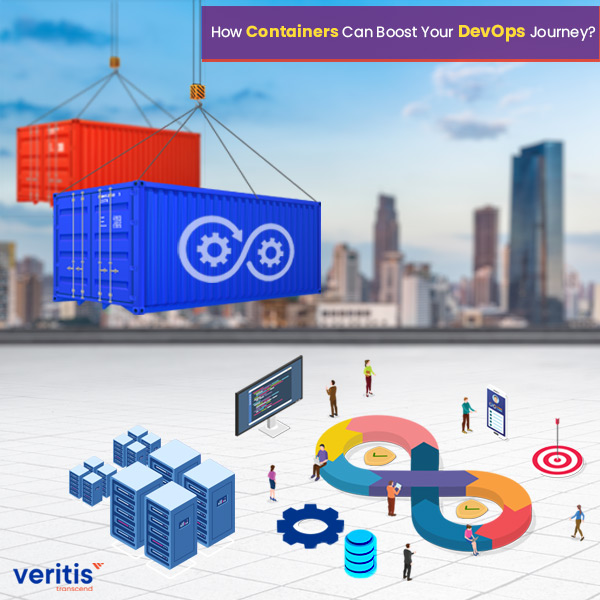Containerization Services
Deliver Applications at New Speed$3.1 B
The container technology industry is forecasted to reach USD 3,123.42 million by 203150 %
Container organizations with one or more orchestration technologies66 %
Firms report accelerated developer efficiency with containers40 %
Firms opting for container orchestration from the rollout stage31.8 %
Expected CAGR of application container market towards 202512.3 %
Growing at a CAGR of 12.3% from 2024 to 2031Embrace Containerization Services for Business Evolution
Containerization services empower organizations to modernize their IT infrastructure, streamline operations, and accelerate application deployment. By leveraging container technologies such as Docker and Kubernetes, we help businesses achieve greater efficiency, scalability, and flexibility in managing their applications.
Our expert team collaborates with you to grasp your needs and craft customized containerization solutions that fit your business requirements and budget. With Veritis, you can confidently embrace containerization and focus on driving innovation while we handle the complexities of managing your containerized environment.

How Do We Help?
We provide comprehensive containerization services to address diverse business needs from conceptualization to implementation. We assist in devising a robust containerization strategy tailored to your organizational goals and application landscape. Our experts leverage Kubernetes to automate containerized applications’ deployment, scaling, and management, ensuring seamless orchestration across diverse environments. We help design and implement microservices-based architectures to enhance application agility, scalability, and resilience. Additionally, our CI/CD pipelines enable rapid and reliable delivery of containerized applications, facilitating faster time-to-market and iterative development cycles.
Containerization Offerings
Dockerization
Transform monolithic applications into lightweight, portable Docker containers for enhanced agility and resource utilization.
Container Security
Implement robust security measures to protect containerized environments against vulnerabilities and cyber threats.
Kubernetes Deployment
Seamlessly deploy and manage containerized applications at scale with Kubernetes, ensuring high availability and performance.
Cluster Optimization
Fine-tune Kubernetes clusters for optimal resource utilization, cost efficiency, and performance.
Orchestration Strategy
Devise effective strategies for orchestrating containers to streamline deployment and management processes.
Why Containerization?
In today’s software environment, where most tasks run on the cloud and in a DevOps culture, application delivery needs special attention to keep the business running.
In the process of streamlining infrastructure, Cloud and Virtualization are a means of enhancing server efficiencies and maximizing server resources.
Further, in line with the application-centric business transformation, running apps faster, smoothly, and securely has become a key focus. Eventually, firms began migrating to perform better with higher efficiency and competitive operating costs.
That’s where the containerization technology made the difference! Some call it a replacement for virtualization,’ while others say it’s ‘an advancement to the concept of Virtual Machines (VM).’
Containerization was a sophisticated approach for effectively utilizing server efficiencies with minimum additional resources.
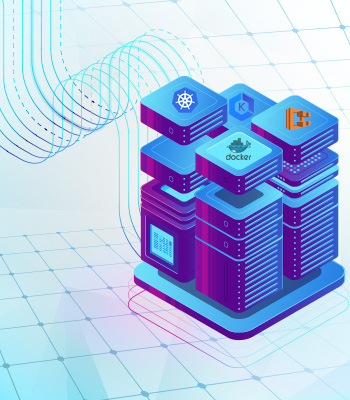
Containerization vs. Virtualization

The underlying concept of both Containerization and Virtualization is finding an alternative to traditional infrastructure setups to execute processes with more flexibility, speed and efficiency, and minimum resources. As a decades-old approach, virtualization offered a solution by enabling apps to run on VMs independently with their own Operating Systems (OS) on top of server OS.
Virtual servers successfully ran multiple apps at a time with an increased app-to-machine ratio, which is an answer to server consolidation and effective resource utilization. Virtualization eliminated the need for an entire server for a single application by dedicating virtual servers for all individual apps. As a step further, Containerization provided an answer to OS consolidation.
Containerization is applied to OS using the same principle that virtualization applies to servers. It eliminates the need for an entire OS for each application. Instead, it provides individual apps with dedicated environments that help them run independently, irrespective of environment, without needing VMs.
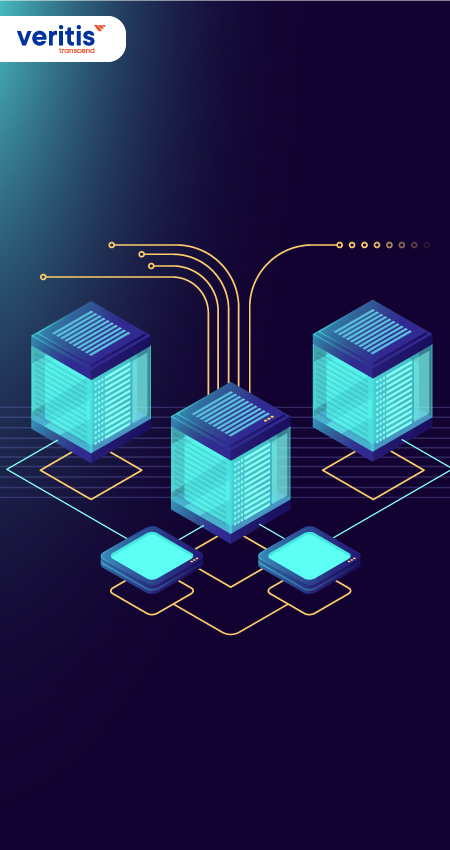
The Secret of Containerization!
The core functioning of containerization moves around the concept of OS virtualization.
By virtualizing OS, the containerization process typically creates scope for distributing applications across a single host without needing virtual servers.
Then How Does the Application Interact With OS?
Containerization does that by granting applications access to a single OS Kernel, the heart of OS, which runs all the containerized applications in a single machine.
Unlike a virtualized environment that calls for OS replication every single time, causing overhead, containerization removes the OS layer altogether and shares the Kernel access with the host machine and containerized applications running on it.
Containerization served as a lightweight alternative to Virtual Machines (VM)’, encapsulating apps within a container with dedicated operating environments, related dependencies, configuration files, and libraries, i.e., referred to as ‘Application Containerization.’
With such functionality, Containerization services make your applications:
- Distributed
- Portable
- Independent
- Run on a single server
- Deliver faster than on VM
Other Containerization Benefits Include:

Minimum Resources
Unlike virtualization, run multiple containers in minimum space, which might consume gigabytes.

Optimized Efficiency
Only a single OS is used for multiple containers, thus helping to run more containers on a host.

More Applications
Eliminating the OS layer and applications’ access to the Kernel OS makes containers smaller, thus offering scope to run more applications.

Faster Than VM
It has containerized apps run on an OS kernel that is already booted up and does not require a fresh boot every time, unlike an individual OS in a VM. This saves a lot of time and space.

Consistency and Flexibility
Run applications successfully, irrespective of platform and configurations. Containers work in the local environment, whether in testing or production.

Version Control
Enjoy the flexibility of tracking versions of your application code and related dependencies. Efficiently perform maintain, track, differentiate, and roll-back functions among versions.

Productivity
Application containerization naturally accelerates the process by dividing the bulk apps into components. Each component can be divided into multiple containers as microservices, making it easier for developers to upgrade individual services.
Containerization in Cloud and DevOps
As the trends show, containerization strongly influences Cloud Computing and DevOps trends. With its advanced solution for boosting infrastructure efficiency, Containerization-as-Service is already leaving its mark in the cloud’s as-a-service models.
Public cloud containers are already significantly impacting the needs of Dev and Ops teams, thus contributing to the successful functioning of the DevOps culture.
Meanwhile, increasing DevOps adoption pushes many firms to look at ‘Microservices architecture’ for the next optimization level in software releases and quality enhancement.
It is noteworthy that container applications have already emerged as the best choice for running microservices application architecture. Containers are already reporting a high success rate in migrating workloads to AWS and Azure!
Moreover, Container Orchestration is a proven methodology for applying containers at the enterprise level, especially for load balancing, scheduling, and other tasks.
A perfect container strategy, with proper tools, framework, and implementation across the application and software development lifecycle, offers high agility and shortens productivity time.
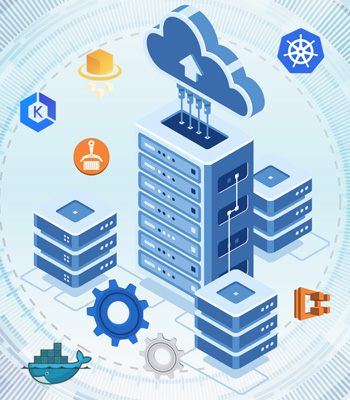
Success Stories
Explore how Veritis containerization services have empowered organizations to achieve their digital transformation objectives.
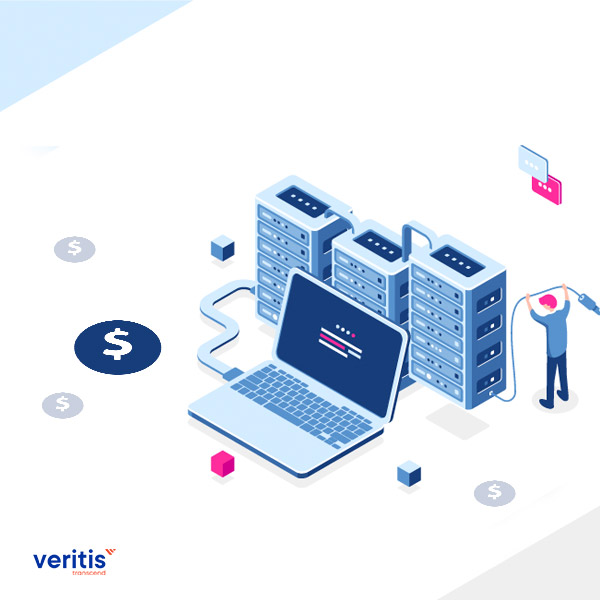
Data Center Migration, Server Builds and IT Infrastructure Support for Banking Industry
Business Value Delivered Association with us helped the client improve their server infrastructure involving both physical...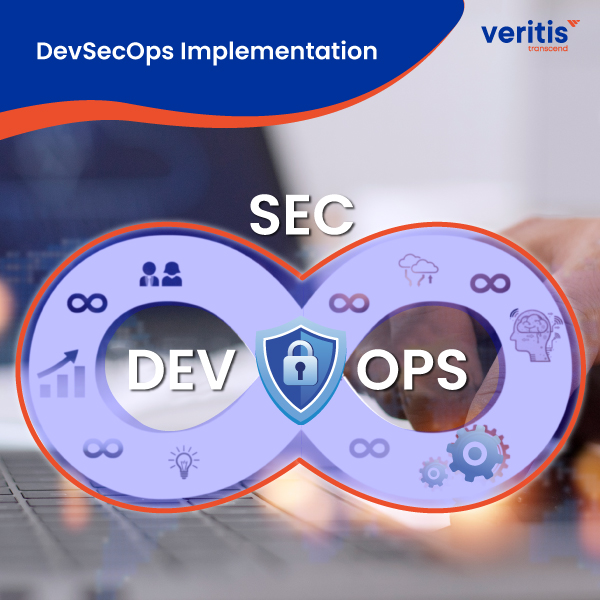
DevSecOps Implemention : Enhancing Security for an Energy Services Firm
This case study focuses on implementing DevSecOps practices within an energy storage company. The client is a...
Strengthening Digital Well-being: A Cybersecurity Transformation for Fitness and Wellness Platform
In digital well-being, a leading fitness and wellness platform sought to fortify its ecosystem against cybersecurity threats....Resources
Tap into Veritis' expertise and resources to accelerate your containerization journey.
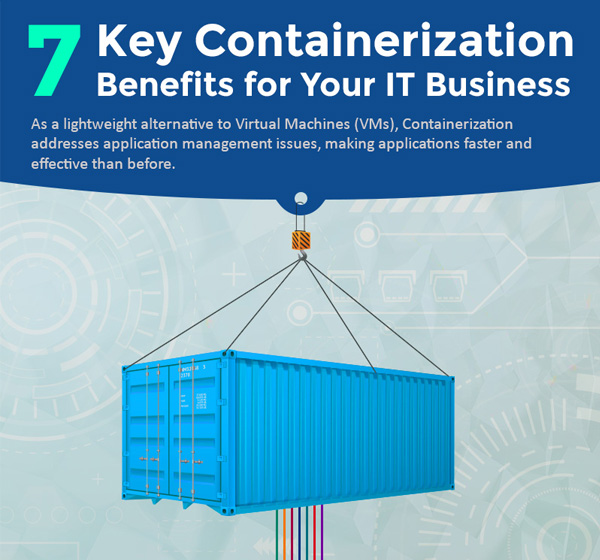
7 Key Containerization Benefits for Your IT Business (Infographic)
Containerization, the IT industry’s most favorite word today! Yes, that’s because of its ability to deliver...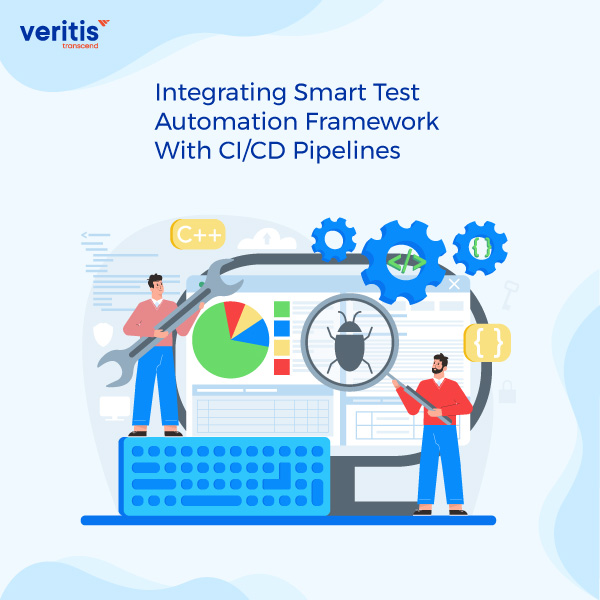
Integrating Smart Test Automation Framework With CI/CD Pipelines
In the contemporary software development domain, agility, reliability, and speed are desirable traits and prerequisites for...